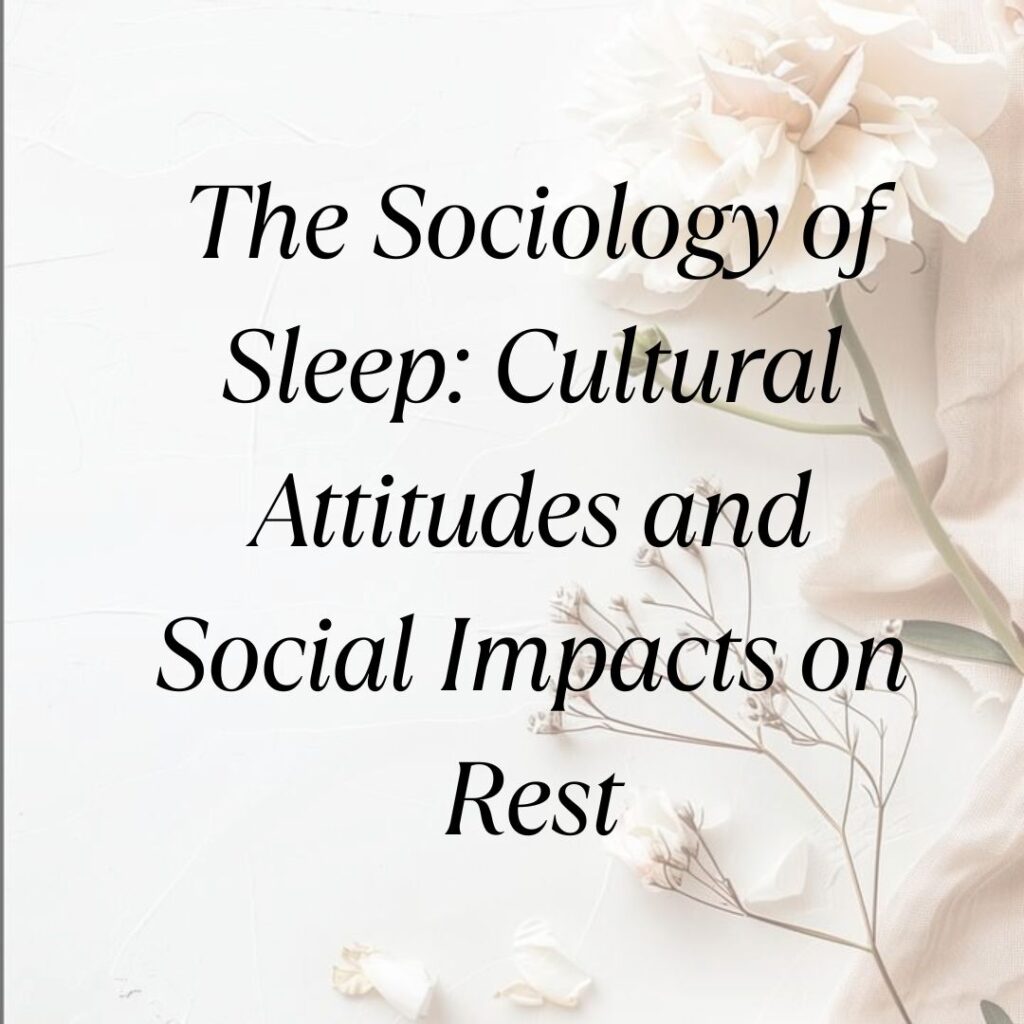Sleep, that elusive yet essential activity that consumes roughly one-third of our lives, is far more than just a biological necessity. It is deeply intertwined with our cultures, beliefs, and social structures, shaping not only our personal well-being but also societal norms and expectations. In this exploration of the sociology of sleep, we delve into how cultural attitudes towards sleep have evolved, the social impacts of inadequate rest, and its relevance in our increasingly fast-paced world.
Cultural Attitudes Towards Sleep
Cultural attitudes towards sleep vary dramatically across the globe. In some societies, sleep is revered as a sacred act, deeply intertwined with spiritual practices and rituals. Take, for example, the concept of “dreamtime” among Indigenous Australian cultures, where dreams are considered a means of connecting with ancestors and understanding the world. In contrast, Western industrialized societies often prioritize productivity over rest, with phrases like “I’ll sleep when I’m dead” reflecting a prevailing attitude that equates sleep with laziness or wasted time.
These cultural attitudes are reflected in societal norms around sleep duration and timing. In Japan, for instance, long work hours and social expectations often result in chronic sleep deprivation among workers—a phenomenon known as “karoshi,” or death by overwork. In Mediterranean cultures, the siesta tradition reflects a practical adaptation to hot climates, encouraging a brief rest during the hottest part of the day.
Social Impacts of Inadequate Rest
The consequences of inadequate sleep extend far beyond individual health. Socially, sleep deprivation has been linked to impaired cognitive function, reduced productivity, and increased risk of accidents. In the medical field, studies have shown that sleep-deprived healthcare professionals are more prone to making errors, impacting patient safety.
Economically, the costs of sleep deprivation are staggering. According to a study by RAND Europe, sleep deprivation costs the UK economy £40 billion annually in lost productivity. In the United States, the figures are even more staggering, with estimated losses ranging from $50 billion to $411 billion per year, depending on the study.
Moreover, the societal burden of sleep disorders such as insomnia and sleep apnea underscores the need for greater awareness and support systems. These disorders not only affect individuals’ quality of life but also strain healthcare resources and contribute to a cycle of chronic health conditions.
Relevance in the Modern World
In today’s hyperconnected world, where digital devices keep us engaged around the clock, the boundaries between work, leisure, and sleep have blurred. The prevalence of smartphones and social media has led to a phenomenon known as “social jet lag,” where individuals stay up late to interact online, disrupting their natural sleep-wake cycles.
The COVID-19 pandemic further highlighted the intersection of sleep and society. Lockdowns and remote work shifted many people’s schedules, leading to irregular sleep patterns and increased instances of insomnia. At the same time, frontline workers faced unprecedented levels of stress and sleep disruption, exacerbating existing healthcare challenges.
Technological advancements have also reshaped how we understand and manage sleep. Wearable devices and smartphone apps now offer insights into our sleep patterns, fostering a culture of self-monitoring and optimization. However, concerns about privacy and the accuracy of these devices raise questions about their long-term impact on our relationship with sleep.
Conclusion
The sociology of sleep reveals a complex interplay between biological imperatives, cultural beliefs, and societal pressures. As we navigate an era defined by rapid technological change and global interconnectedness, understanding the cultural attitudes towards sleep and addressing the social impacts of inadequate rest are more critical than ever.
Ultimately, promoting healthy sleep habits requires a multifaceted approach that encompasses education, policy reform, and cultural sensitivity. By recognizing sleep as a fundamental human need and societal asset, we can strive towards creating environments that support restful sleep for all individuals, thereby fostering healthier, more productive communities.
In conclusion, the sociology of sleep invites us to reflect on how our cultural attitudes and social structures influence something as fundamental as our nightly rest. By exploring these dynamics, we not only gain insights into ourselves but also pave the way for a more sleep-conscious and balanced future.
Sleep well, for it is in our dreams and our rest that we find renewal and resilience in our waking lives.






